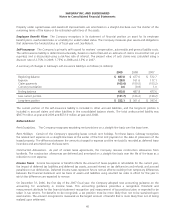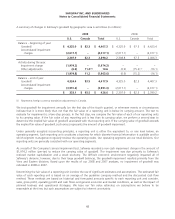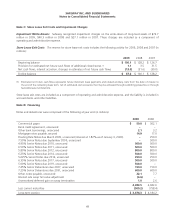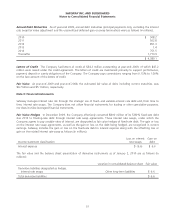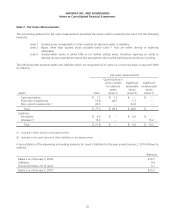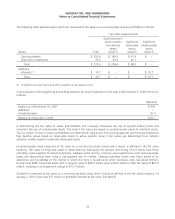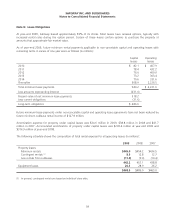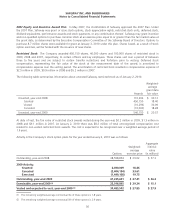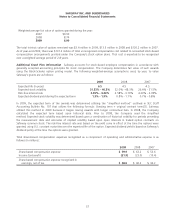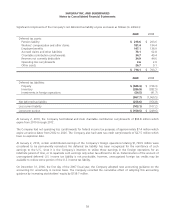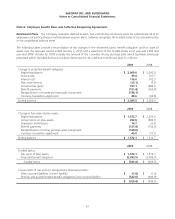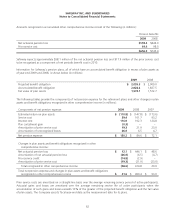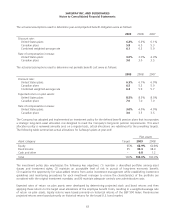Safeway 2009 Annual Report Download - page 71
Download and view the complete annual report
Please find page 71 of the 2009 Safeway annual report below. You can navigate through the pages in the report by either clicking on the pages listed below, or by using the keyword search tool below to find specific information within the annual report.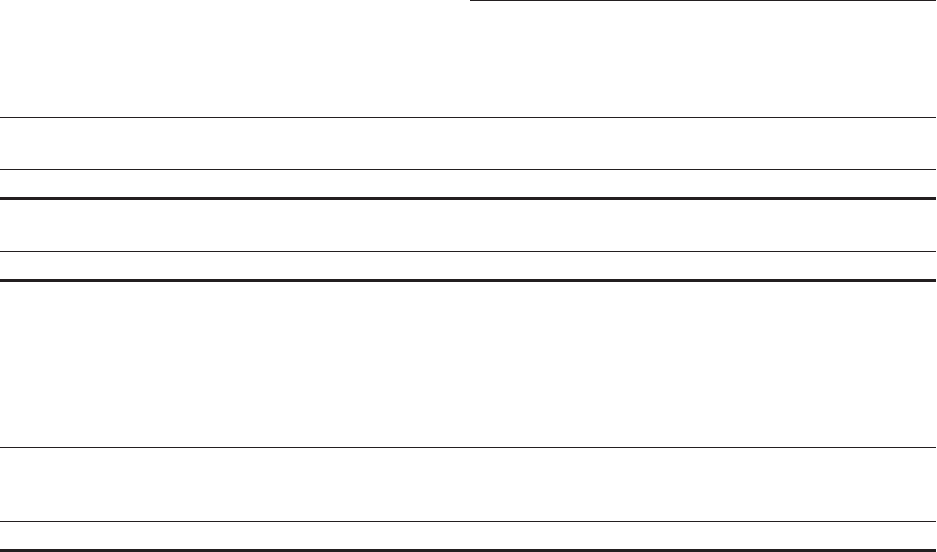
SAFEWAY INC. AND SUBSIDIARIES
Notes to Consolidated Financial Statements
The following table presents assets which are measured at fair value on a recurring basis at year-end 2008 (in millions):
Fair value measurements
Assets: Total
Quoted prices in
active markets
for identical
assets
(Level 1)
Significant
observable
inputs
(Level 2)
Significant
unobservable
inputs
(Level 3)
Cash equivalents $ 202.4 $ 160.5 $ 41.9 $ –
Short-term investments 70.0 43.9 26.1 –
Total $ 272.4 $ 204.4 $ 68.0 $ –
Liabilities:
Warrants (1) $ 10.7 $ – $ – $ 10.7
Total $ 10.7 $ – $ – $ 10.7
(1) Included in Accrued Claims and Other Liabilities on the balance sheet.
A reconciliation of the beginning and ending balances for Level 3 liabilities for the year ended January 3, 2009 follows (in
millions):
Warrants
Balance as of December 29, 2007 $10.8
Additions –
Unrealized gains (0.1)
Balance as of January 3, 2009 $10.7
In determining the fair value of assets and liabilities, the Company maximizes the use of quoted market prices and
minimizes the use of unobservable inputs. The Level 1 fair values are based on quoted market values for identical assets.
The fair values of Level 2 assets and liabilities are determined using prices from pricing agencies and financial institutions
that develop values based on observable inputs in active markets. Level 3 fair values are determined from industry
valuation models based on externally developed inputs.
Long-lived assets were measured at fair value on a nonrecurring basis using Level 3 inputs as defined in the fair value
hierarchy. Fair value of long-lived assets is determined by estimating the amount and timing of net future cash flows
(including rental expense for leased properties, sublease rental income, common area maintenance costs and real estate
taxes) and discounting them using a risk-adjusted rate of interest. Safeway estimates future cash flows based on its
experience and knowledge of the market in which the store is located and, when necessary, uses real estate brokers.
During fiscal 2009, long-lived assets with a carrying value of $99.0 million were written down to their fair value of $25.3
million, resulting in an impairment charge of $73.7 million.
Goodwill is measured at fair value on a nonrecurring basis using Level 3 inputs as defined in the fair value hierarchy. At
January 2, 2010, there was $37 million of goodwill recorded at fair value. See Note B.
53




